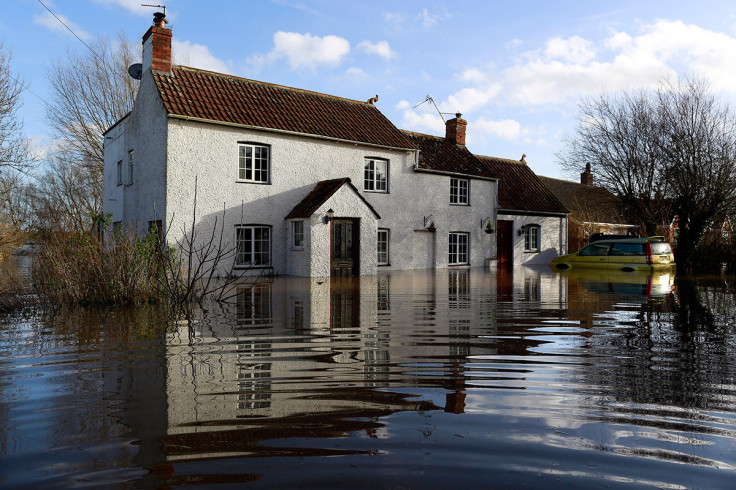David Cameron Faces Electoral Fallout from UK Floods Crisis

Finally, the floodwaters are retreating and thousands of businesses, farmers and residents are battling to recover from the disaster that has devastated their lives.
But the crisis is still far from over for those affected, with insurance companies saying many families will not be back in their homes until Christmas.
That does not just represent a nightmare for those families and individuals but could have far-reaching political consequences for David Cameron and the Tories which could run right through to the May 2015 general election.
When the media attention has turned away from the crisis, thousands will still be dealing with the aftermath of the worst weather-related event the country has seen for decades. And they will still be looking to the government for action.
Prime minister David Cameron has shown he is sensitive to the possible consequences and has turned his attention to one of the most difficult post-crisis issues - making sure insurance companies live up to their responsibilities.
Industry representatives met junior ministers in the Cabinet Office to be urged to pay up in good time, but after the meeting it was unclear what might have been achieved.
Minister Dan Rogerson said the firms had backed the scheme that would provide affordable insurance for 350,000 homes at high risk of flooding. But that will not come into effect until next summer.
It was also stressed that the industry had already paid out £14m to households and businesses since December, with a further £24m spent on housing those affected in alternative accommodation.
But Association of British Insurers representative Aidan Kerr failed to rule out an increase in future premiums to meet the costs of the current floods.
Labour branded the meeting a "vacuous PR exercise" and Ed Miliband added: "The government must sit down with insurers and agree a new industry standard that significantly reduces the time that people have to wait to have their houses restored and move back home."
The scale of the potential political fallout has been highlighted by recent polls suggesting Cameron has failed to show he has a grip on the situation and that the worst affected areas are traditional Tory or Liberal Democrat voting areas.
A ComRes poll for ITV has shown a huge 72% of people think that the Government does not appear to be in control of the flooding, five points up over the past two weeks.
Meanwhile a YouGov poll at the weekend suggested only 17% believed Cameron had "responded in the most sensible way" to the crisis.
The only good news for the Tories is that Labour leader Ed Miliband fares no better. But, of course, he does not have his hands on the levers that can make things better so is likely to suffer less.
Meanwhile, an analysis by the Times has shown that of the 40 most marginal seats held by the Tories, 15 have been affected by the weather while, of the 20 most marginal Lib Dem seats, 12 have been hit by floods
The seats have small majorities of 3,000 or less so only small movements away from the sitting MPs could unseat them.
On the other hand, of the 20 most vulnerable Labour seats, only four have had flooding near by in the past two months, according to the analysis.
The upshot of all this is that there could be an unpredictable but significant electoral consequence from the weather events with the government, inevitably, most likely to suffer from any backlash.
Any temptation for ministers to take their eye of this particular ball over the coming months could prove disastrous.
© Copyright IBTimes 2025. All rights reserved.






















